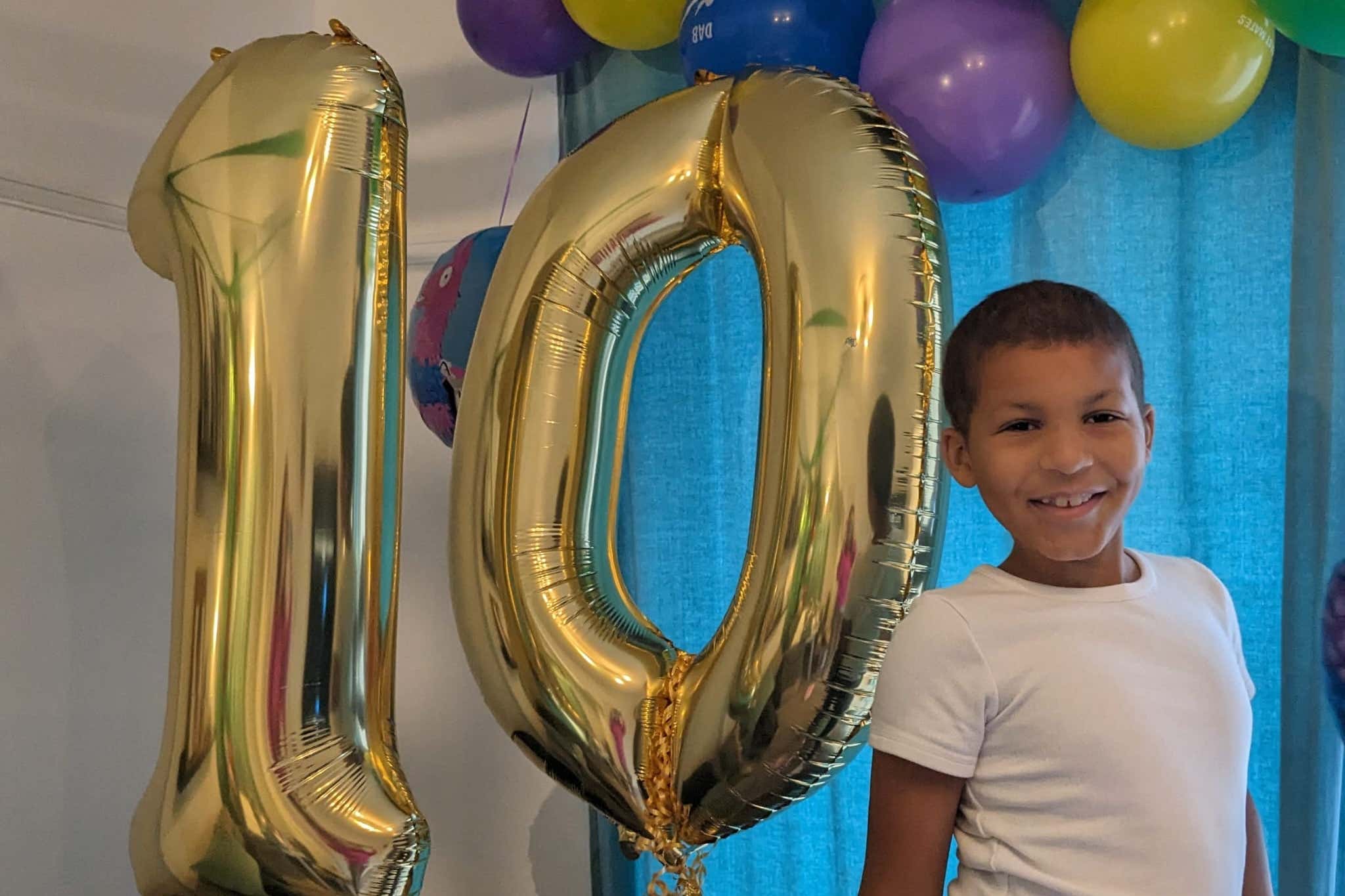‘Stress lifted’ with son’s brain tumour drug made available on the NHS
The combination of dabrafenib and trametinib was given the green light by the National Institute for Health and Care Excellence in April.

A mother who was spending thousands of pounds a month on medication to treat her son’s brain tumour has spoken of her relief after the drug became available on the NHS.
Rhonda Josephs, 47, from south-east London, told the PA news agency she “can’t put it into words” how it felt to collect the first prescription for her son Alexander, 10.
The combination of dabrafenib and trametinib was approved for NHS use for youngsters with brain tumours in April.
However, Alexander has been accessing the medication privately at a cost of about £3,700 a month – or more than £11,000 for a three-month supply – for the past two-and-a-half years.
The family had turned to crowdfunding to help raise the cash, setting up a gofundme page.
The pharmacist handed it over - it almost felt strange being able to take it without all of the pressure to get to that point
Mrs Josephs said: “Having a child with cancer, then having to raise loads of money – that was almost more than we could cope with.
“To have that financial stress lifted, I can’t put it into words.
“It just felt so strange to be able to walk past the cashier’s office and not hand over £11,000, and go to the pharmacy like any other person.
“The pharmacist handed it over – it almost felt strange being able to take it without all of the pressure to get to that point.”
Alexander has glioma, the most common type of brain cancer in children and young people, which develops from the glial cells that support the nerve cells of the brain and spinal cord.
The combination of dabrafenib and trametinib was given the green light for NHS use by the National Institute for Health and Care Excellence (Nice) for patients aged one and over with either low-grade or high-grade glioma with the genetic mutation BRAF V600E.
The two drugs work together by blocking the growth signal coming from the mutant BRAF protein and can slow or even stop the tumour from growing.
Mrs Josephs told PA: “What’s really special for me about the [Nice] approval is that Xander is getting ‘me’ back.
“We’ve tried to hide it from him as much as possible but that pressure changed us. Now we can all get back to focusing on each other.”
She added that the response to her gofundme page was “really positive”, adding: “Everyone rallied round. I couldn’t have done it without them.”
Some of the money raised also allowed Alexander to visit Germany to have a personalised cancer vaccine.
“Alexander now has T cells present in his immune system should it try to return. He’s responded really well to it,” his mother said.
Mrs Josephs described her son as “perfectly fit and healthy, really strong and really into sports” before his first seizure at age six in September 2020, during the Covid-19 pandemic.
“It lasted for a really long time. I called an ambulance and he was still seizing when it arrived,” she told PA. “It was terrifying.”
Doctors initially thought the seizure was a one-off and Alexander was booked in for a routine MRI on his brain, which took place in the November. However, the results were lost.
When Alexander returned to the emergency department following another seizure in December 2020, the scan images were recovered and the family were informed he had a brain tumour.
Medics believed the tumour was slow growing, but Mrs Josephs urged them to perform surgery in January 2021.
He's just getting his life back. I don't want to say he's unscathed because he's not
Weeks later Alexander’s cancer was confirmed as an aggressive glioma which had grown.
At that point, Mrs Josephs said Alexander’s “seizures were getting rapidly worse, he was getting sicker and sicker really quickly”.
She added: “I was beyond devastated and the slow action had brought us to this point.”
Alexander eventually had a 10-hour operation to remove the tumour in March 2021, when it was discovered the cancer had spread to his spine.
Within weeks symptoms returned, with his second and third surgeries taking place in June of that year.
Medics told the family that Alexander was in remission in January 2024, leaving Mrs Josephs “cautiously optimistic, as he’s still undergoing treatment”.
“They were words we’d waited to hear,” she added. “Alexander is getting back to his sports and he’s just becoming a normal little boy again. He’s doing remarkably well.
“He’s just getting his life back. I don’t want to say he’s unscathed because he’s not.
Alexander's struggle underscores the immense challenge of finding cures for this complex and unpredictable group of diseases
“But it could have been so much worse. We’re really grateful for how he’s doing.”
The family now plan to enjoy summer, Mrs Josephs said: “The weather is definitely not going to stop us.”
Cameron Miller, director of strategy and external affairs at the Brain Tumour Charity, said: “Twenty years ago, our research funding helped identify BRAF mutations in brain tumours.
“When a breakthrough came following clinical trials, we worked with the National Institute for Health and Care Excellence to ensure the patient voice was heard.
“Our representatives, including a patient expert, participated in the scoping meeting and provided essential evidence to the committee meeting. So, we are delighted at this outcome.
“Yet Alexander’s struggle underscores the immense challenge of finding cures for this complex and unpredictable group of diseases.
“It’s vital that we continue to pursue these relentlessly and prioritise funding for research into brain tumours to accelerate the development and NHS availability of effective new treatments.”
Mrs Josephs said “cancer doesn’t wait for red tape”, adding: “I do feel children with brain tumours are written off and this shows they shouldn’t be.”
Bookmark popover
Removed from bookmarks